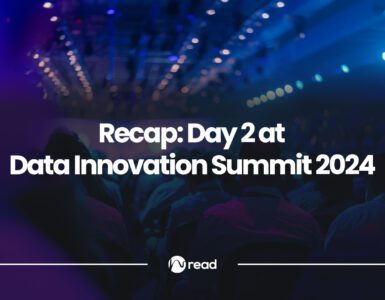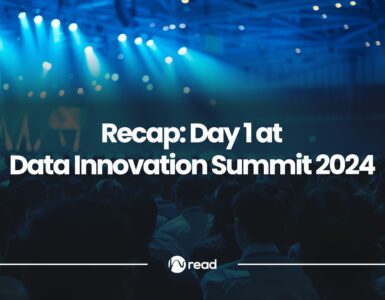In today’s digital economy, simply hoarding massive quantities of data is not a competitive advantage. Indeed, data is the most valuable asset that acts as a catalyst for the economic world in the Data & AI industrialisation era. Therefore, knowing how to monetise your data effectively can be a competitive differentiator.
Unfortunately, too many initiatives for solving the most desired goal of effective data monetisation have ended fruitlessly, costing companies a lot of money and lost effort along the way. One of the most jarring issues is how companies perceive data and its value, argues Bill Schmarzo, Author, Professor, Innovator and Advisor – Data Science and Data Monetization at the Dean of Big Data.
In his rich experience in the data and analytics space for nearly 40 years, he has seen a lot of evolution in the field taking place “where data was a cost we minimised, and now data is an economic asset.” Having lived through this journey, Schmarzo likes to say that at the heart of what he does is that he is a teacher and educates people about the unique economic aspects of data analytics. This is exactly what he’ll be doing at the upcoming Data Innovation Summit 2021, where he’ll present The Economics of Data, Analytics, and Digital Transformation and how colonies can adopt a business-centric, ROI-driven approach to building out their organisation’s data and analytic assets.
Learn more about the Data Innovation Summit
The economics of data analytics and data monetisation
What’s unique about data as an economic asset is that it never depletes, never wears out, and can be used across unlimited use cases at zero marginal cost. “[Data] has a unique economic characteristic that we’ve never seen before. When people talk about data as the new oil, well, it’s not. Data is the new sun, it never depletes and keeps going,” states Schmarzo.
Not only data is an asset that doesn’t deplete, but you can build analytics that actually appreciates in value, not depreciate, the more they’re used, adds Schmarzo.
In terms of traditional economics, both of these concepts that you can reuse an asset at zero marginal cost, and you can build an analytic asset that actually appreciates in value, not depreciate actually runs totally counter to how business leaders were taught to think from an accounting perspective. So because of these unique characteristics of data and analytics, the biggest challenge is to transition the leaders from thinking about data from an accounting perspective as an asset that appears on the balance sheet to thinking about it as an economic asset that can be used to generate new sources of customer product and operational value.


How to start thinking about data monetisation
For organisations that are eager to monetise their data and fuel growth in their business and drive material value, Schmarzo shares the most valuable lessons learned in his career. The first and foremost thing to remember is that you can’t fully determine the value of your data and analytics in isolation of the business.
“The conversation has to start with the business, it can’t start with the technology, it can’t start with the analytics, it can’t start with the data, because they don’t really have a value on their own,” emphasises Schmarzo.
As he puts it, the idea that data and analytics is a technology conversation is flawed and outdated. That’s the way data analytics has been perceived for the past 35 years, but things are quickly changing in the digital era. The digitally-driven companies clearly understand that data and analytics is an asset.
“Data is not the exhaust that’s a byproduct of the business. In many organisations, data is the business,” underlines Schmarzo.
Common challenges with data monetisation
Driving value from data doesn’t come short of challenges. One of the most common challenges that stand in the way of data monetisation is the actual understanding of what value means, clarifies Schmarzo.
Besides data and analytics starting out with the business, companies have to understand how they create value. But the crux of the problem is the understanding of the word “value”, he states.
“For a long time, value has always meant financial value. What’s my ROI? How much money do I make? But we’re now seeing value take on a broader definition in terms of customer satisfaction, employee satisfaction, diversity, environmentalism, etc., Schmarzo exemplifies.
We as humans are able to broaden the definition of value to be much more inclusive and take on a much wider meaning, not just financial. According to Schmarzo, financial value can be even a lagging indicator because companies have customers, do operations, do environmental and social activities that drive a financial value. But in terms of data monetisation, it doesn’t mean just money; value is delivered in all kinds of other ways, says Schmarzo. “It’s up to us as humans to more broadly think about how we define value,” he adds.


To be more innovative and survive in the AI era, we need to become more human
The ability to monetise your data is tightly linked to the maturity level of data and AI innovation. Therefore, to accelerate data monetisation, an organisation should also accelerate their data innovation.
Contrary to popular belief, technology doesn’t drive innovation — people do. “The innovation conversation doesn’t start with the technology, it starts with the people. And the companies that are being most successful in the innovation space are these organisations that, for the most part, have figured out how to empower their people and how to embrace the diversity of perspectives to come up and synergise for something better,” related Schmarzo.
“Trust your people, empower your people. The technology is going to be there. It’s there today. And in fact, we’re seeing a democratisation of technology. You know, most of the great technology capabilities are open source. You got the prevalence of cloud that is driving up ability and driving down costs. I don’t worry about the technology side. To a certain extent, I don’t care what technology you use because most kinds of technology get the job done. “
The process of trusting people should start with management and the way they structure the organisation. The reality today is that people sit in boxes. But it’s really hard to converse across boxes and come up with new innovative ideas. So in order to drive innovation, Schmarzo suggests knocking down the boxes and creating “swirls” in the organisation.
“I call this organisational improvisation, where teams can work together when a problem comes up. You can amass the right people, no matter where they sit in the organisation, because they’re not defined by their organisational role. They’re defined by the capabilities they possess and what assets they have. You leverage those assets to solve that problem. And then they scatter or solve other problems.”
The organisational structure should be something that a jazz quintet would have, explains Schmarzo. “How they riff off each other and how they work and how they make great music because everybody in that quartet or quintet has been empowered to do their thing.”


AI and Machine Learning play a crucial role in scaling innovation, but defining innovation is still going to be a human-centric activity, he highlights.
“Today, we’re getting lots of little taste of what AI can do, it certainly hasn’t really flexed its muscles yet. But when it starts to do that, humans to survive are going to have to become more human.”
And for humans to become more human, we need to tap into our three layers of curiosity, creativity and innovation, emphasises Schmarzo. Additionally, we need to be much more empathetic and inclusive, which also connects to the need to embrace a diversity of perspectives to synergise and create the friction that helps drive the synergising of innovative, new ideas.
However, trusting your people by empowering them also means you need to be tolerant of failure, he points out. But you don’t want to just randomly fail. When you make a decision, you need to be thoughtful about it. If the decision was wrong and fails, you want to understand why it didn’t work, why it failed, and then share those learnings.
Because, in knowledge-based industries, the economies of learning are more powerful than economies of scale. And the organisations that are going to survive and thrive in a world of constant transformation are those organisations that can learn and adapt more quickly than their competition, Schmarzo summarises remarkably.
Bill Schmarzo will be the Opening Keynote to the 6th edition of the Data Innovation Summit, presenting on The Economics of Data, Analytics, and Digital Transformation, where he’ll
- Introduce a Maturity Model to assess your organisation’s effectiveness at leveraging data and analytics to power your business models
- Understand the unique economic characteristics of data that makes data the most valuable asset in the world
- Learn a business-centric, ROI-driven approach to building out your organisation’s data and analytic assets.













Add comment